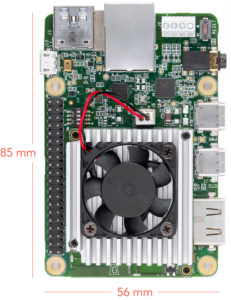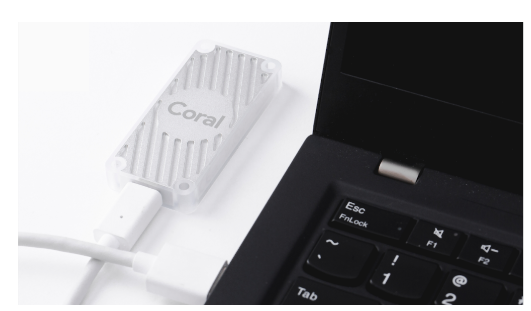Google teased its new hardware products built around its Edge TPU at the Google Next conference last summer. Yesterday, it officially launched the Coral dev board, a Raspberry-Pi look-alike, which is designed to run machine learning algorithms ‘at the edge’, and a USB accelerator.
Coral Development Board
The “Coral Dev Board” has a 40-pin header that runs Linux on an i.MX8M with an Edge TPU chip for accelerating TensorFlow Lite. The board also features 8GB eMMC storage, 1GB LPDDR4 RAM, Wi-Fi and Bluetooth 4.1. It has USB 2.0/3.0 ports, 3.5mm audio jack, DSI display interface, MIPI-CSI camera interface, HDMI 2.0a connector, and two Digital PDM microphones.

Source: Google
Coral dev board can be used as a single-board computer when you need accelerated ML processing in a small form factor. It can also be used as an evaluation kit for the SOM and for prototyping IoT devices and other embedded systems. This board is available for $149.00. Google has also announced a $25 MIPI-CSI 5-megapixel camera for the dev board.
USB Accelerator
The USB Accelerator is basically a plug-in USB 3.0 stick to add machine learning capabilities to the existing Linux machines. This 65 x 30 mm accelerator can connect to Linux-based systems via a USB Type-C port. It can also work with a Raspberry Pi board at USB 2.0 speeds. The accelerator is built around a 32-bit, 32MHz Cortex-M0+ chip with 16KB of flash and 2KB of RAM.

Source: Google
The USB Accelerator is available for $75.
Developers can build Machine Learning models for both the devices in TensorFlow Lite. More information is available on Google’s Coral Beta website. Coming soon are the PCI-E Accelerator, for integrating the Edge TPU into legacy systems using a PCI-E interface. Also coming is a fully integrated System-on-Module with CPU, GPU, Edge TPU, Wifi, Bluetooth, and Secure Element in a 40mm x 40mm pluggable module.
Read Next
Google expands its machine learning hardware portfolio with Cloud TPU Pods (alpha).
Intel acquires eASIC, a custom chip (FPGA) maker for IoT, cloud and 5G environments










![How to create sales analysis app in Qlik Sense using DAR method [Tutorial] Financial and Technical Data Analysis Graph Showing Search Findings](https://hub.packtpub.com/wp-content/uploads/2018/08/iStock-877278574-218x150.jpg)